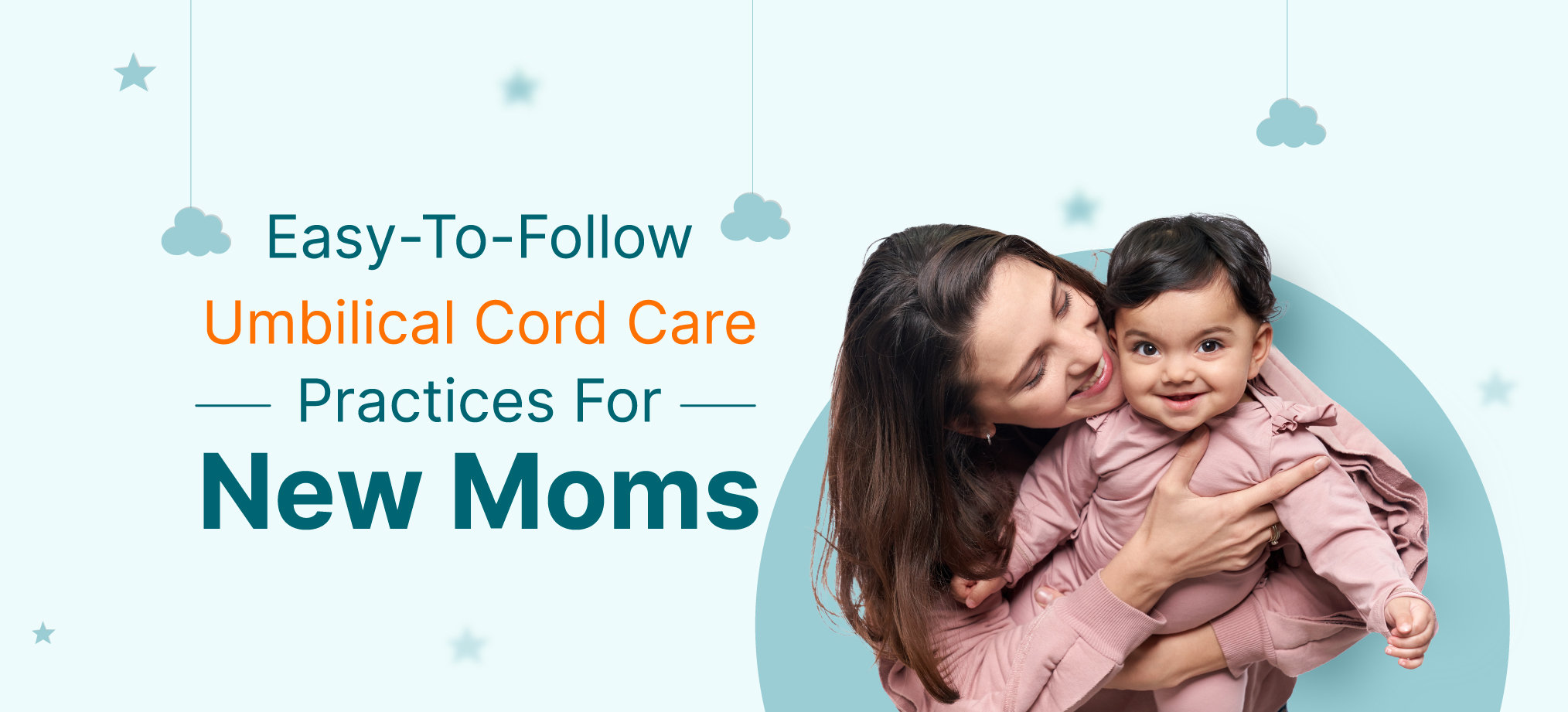- Home
- Blog
- Mom & Baby Care
Tips and Tricks for Newborn Care in First 30 Days
Mom & Baby Care
Tips and Tricks for Newborn Care in First 30 Days
By - 26 December 2022, Updated on -04 February 2025
Share this article
0
0 like

A Baby’s birth is a time for joy, celebration, and learning for first-time parents. The first 30 days are very fragile and special for the mother and newborn baby. Taking care of newborns is essential, especially during the first month of life. According to World Health Organization (WHO), in 2020 2.4 million children died in the first month of life globally.

Common newborn issues
There are various newborn medical problems, which if left untreated can become a serious condition. Dehydration, weight loss, infection, diaper rash, and malnutrition are very common concerns for newborns.
What to do in the first 30 days to keep your baby safe and healthy?
All infants should have access to the crucial care that every baby needs in the first few days after delivery, known as essential newborn care.
Early essential newborn care helps the mother give the baby vital warmth, placental blood, and bacterial protection. This straightforward gesture of love improves your baby's health, calmness, strength, and color.
Parents and close relatives should not touch the newborn just after coming out of the house and with dirty hands, as this may lead to infection in the baby. Use good quality diapers, cream, and baby care products and check the labels before use.
Both immediate treatment at the time of birth and vital care during the entire newborn period are included in essential newborn care. Both at home and in a medical facility, it is necessary.
This care includes:
- Immediate care at birth (delayed cord clamping, thorough drying, assessment of breathing, skin-to-skin contact, early initiation of breastfeeding)
- Thermal care
- Resuscitation when needed
- Support for breast milk feeding
- Nurturing care
- Infection prevention
- Assessment of health problems
- Recognition and response to danger signs
- Timely and safe referral when needed
Some Special care for your newborn
Handling a newborn
Handling a newborn is one of the most important skills that new parents should learn.
Always wash or sanitize your hand before holding a baby
Support the head and neck while carrying a baby
Hold the babies gently and securely to soothe them
Avoid bouncing your baby in the first 30 days, your baby is not ready to play.
Kangaroo mother care
Kangaroo mother care is nothing but direct skin-to-skin contact between mother and newborn.
It helps your newborn a lot
Enhances the health and wellbeing of newborns who are born prematurely or with low birth weight
Encourages stronger maternal-child bonds
Makes it easier to breastfeed exclusively, which develops the baby's immune system
Provide efficient temperature regulation, lowering the danger of hypothermia
Through KMC, fathers can also provide their children with skin-to-skin contact.
Umbilical cord care
find out more about handling the umbilical cord of a newborn.
Between ten days and three weeks, the dried cord detaches. Delay bathing or soaking the infant until the cord stump is removed. You must get medical help if the chord bleeds, turns red, or emits an odor.
Bathing care
To master the fundamentals of bathing a newborn, you might want to enlist the assistance of a doula. For the first couple of weeks, stay away from soap and strong shampoo.
When washing the body with a washcloth and a gentle cleanser after the umbilical cord stump has healed, be sure to support the baby's neck and head.
Exclusive breastfeeding
For the first six months of life, the newborn will only receive breast milk and no other food or drink, grip water, not even water.
Your kid will be protected from common childhood illnesses like pneumonia and diarrhea if you exclusively breastfeed, and if they do get sick, they will recover more quickly.
Additionally, exclusively breastfeeding benefits mother’s health and well-being by helping to space out children, lowering the risk of breast and ovarian cancer, and providing a safe and affordable method of feeding.
You can use Apollo Pharmacy’s electronic breast pump to increase the flow of breast milk supply to newborn.
After every feed baby must be burped. Learn how to indue burping in babies. Hold your baby against your chest, or your lap, or sitting up and gently pat the back with a flat palm.
Diapering care
A newborn baby usually passes stool within the first 24 hours of birth and urine within the first 48 hours. After that, a well-fed baby should wet 3-4 diapers per day. As the baby grows, you may require ten diapers per day.
Use water and a gentle washcloth or wipes to clean the baby. When necessary, apply diaper rash cream. Head to your closest Apollo Pharmacy store to shop for diapers, wipes, and rash creams. As part of routine newborn baby care, consult your baby's pediatrician about signs of skin conditions such as diaper rash, cradle cap, and so on.
Vaccine care
All babies should get the first shot of the hepatitis B vaccine within 24 hours of birth. At birth or as early as possible within the first 15 days, they should get OPV Vaccine. Vaccination is very important for a newborn, especially after birth.
Love care
Most parents learn to soothe, swaddle, and bond with their newborns during the first few days after birth. In the first few days, be very gentle with the baby. Skin-to-skin contact with the infant is beneficial to the majority of babies.
Childbirth is also a new journey for parents. Early newborn care can prevent further disease conditions. Make sure you are providing all essential care to your new born in their first 30 days.
Services
Mom & Baby Care
Leave Comment
Services
Recommended for you

Mom & Baby Care
Why Is My Child Crying? Important Things Every Parent Should Know
Crying may indicate a child's need for food, sleep or comfort. However, constant crying might indicate an underlying issue that can only be addressed by a child specialist. Read all the probable child crying reasons in this article below.

Mom & Baby Care
Newborn’s Belly Button - How To Care?
To keep your baby's umbilical cord (stump) clean and healthy, we've compiled a few basic tips for you to follow. Hope the insights shared in the blog are a worthwhile read!

Mom & Baby Care
Diaper Rash: Know How To Deal With It
Diaper rash is an extremely common problem, especially amongst infants who wear diapers regularly. Typically manifesting as red, uncomfortable patches of inflamed skin, this condition can be easily treated at home.
Subscribe
Sign up for our free Health Library Daily Newsletter
Get doctor-approved health tips, news, and more.

